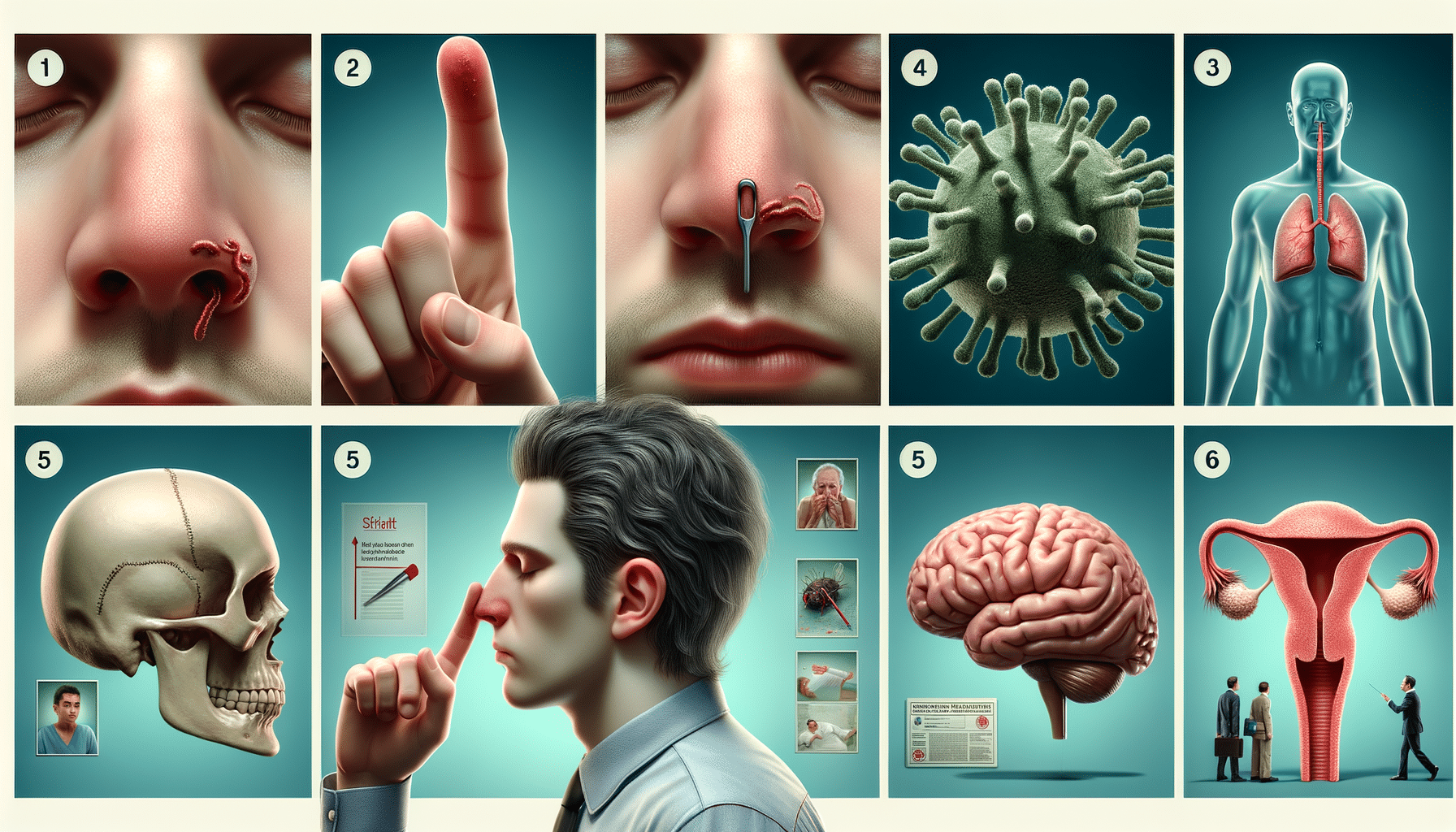
Why Picking Your Nose Can Be More Dangerous Than You Think: 5 Health Risks Most People Ignore
Introduction: The Hidden Dangers of Nose Picking
Nose picking is often seen as a harmless habit, albeit socially frowned upon. However, this seemingly innocuous act can lead to a series of health risks that many people are unaware of. From infections to nosebleeds, the implications of frequent nose picking can be more severe than one might expect. This article delves into the various health risks associated with this habit, encouraging readers to reconsider the next time they reach for their nostrils.
Infections: A Gateway for Bacteria
One of the most significant risks of nose picking is the increased likelihood of infections. Our hands come into contact with countless surfaces throughout the day, each teeming with bacteria and viruses. When we insert our fingers into our noses, we provide a direct pathway for these pathogens to enter our bodies. This can lead to nasal infections, which may manifest as redness, swelling, or pain in the nasal area. In more severe cases, these infections can spread to other parts of the body, leading to conditions such as sinusitis or even systemic infections.
To mitigate this risk, it’s crucial to maintain good hand hygiene. Regular handwashing and the use of hand sanitizers can significantly reduce the number of germs on our hands. Additionally, using a tissue instead of fingers can help prevent the direct transfer of bacteria to the nasal cavity.
Nosebleeds: A Common Consequence
Frequent nose picking can damage the delicate blood vessels inside the nose, leading to nosebleeds. The inner lining of the nose is sensitive and easily irritated, especially when subjected to repeated trauma from fingernails. This can cause the blood vessels to rupture, resulting in bleeding. While occasional nosebleeds are not typically a cause for concern, frequent episodes can be problematic, leading to anemia or other complications.
To prevent nosebleeds, it’s essential to keep the nasal passages moist. Dryness can exacerbate the likelihood of bleeding, so using a saline nasal spray or a humidifier can help maintain moisture. Additionally, trimming fingernails and being gentle when cleaning the nose can reduce the risk of causing injury.
Damage to Nasal Tissues: Long-term Implications
Beyond immediate infections and nosebleeds, habitual nose picking can cause long-term damage to nasal tissues. Over time, persistent picking can lead to the formation of sores or ulcers inside the nose. These can be painful and may become infected, leading to further complications. In extreme cases, chronic nose picking can even cause a perforation of the nasal septum, the wall that divides the two nostrils.
Such damage can have lasting effects, potentially altering the structure of the nose and affecting breathing. To avoid these outcomes, it’s important to break the habit of nose picking and seek alternative methods for nasal hygiene, such as using nasal irrigation systems or consulting with a healthcare professional for persistent issues.
Social and Psychological Impacts
While the physical health risks of nose picking are significant, the social and psychological impacts should not be overlooked. Nose picking is often considered a socially unacceptable behavior, leading to embarrassment or social stigma for those caught in the act. This can affect an individual’s self-esteem and confidence, particularly in social or professional settings.
Moreover, habitual nose picking can be a sign of underlying psychological issues, such as anxiety or obsessive-compulsive disorder (OCD). Addressing these root causes through behavioral therapy or counseling can help individuals overcome the habit and improve their overall mental well-being. Encouraging open discussions about such habits can also reduce the stigma and promote healthier coping mechanisms.
Conclusion: Rethinking a Common Habit
While nose picking might seem like a minor habit, it’s clear that the potential health risks and social implications are far from trivial. By understanding the dangers associated with this behavior, individuals can take proactive steps to protect their health and well-being. Whether it’s through improved hygiene practices or seeking professional help for underlying issues, addressing the habit of nose picking is crucial for maintaining both physical and mental health.
In a world where personal hygiene and health consciousness are increasingly prioritized, it’s time to rethink our habits and make informed choices for a healthier future.